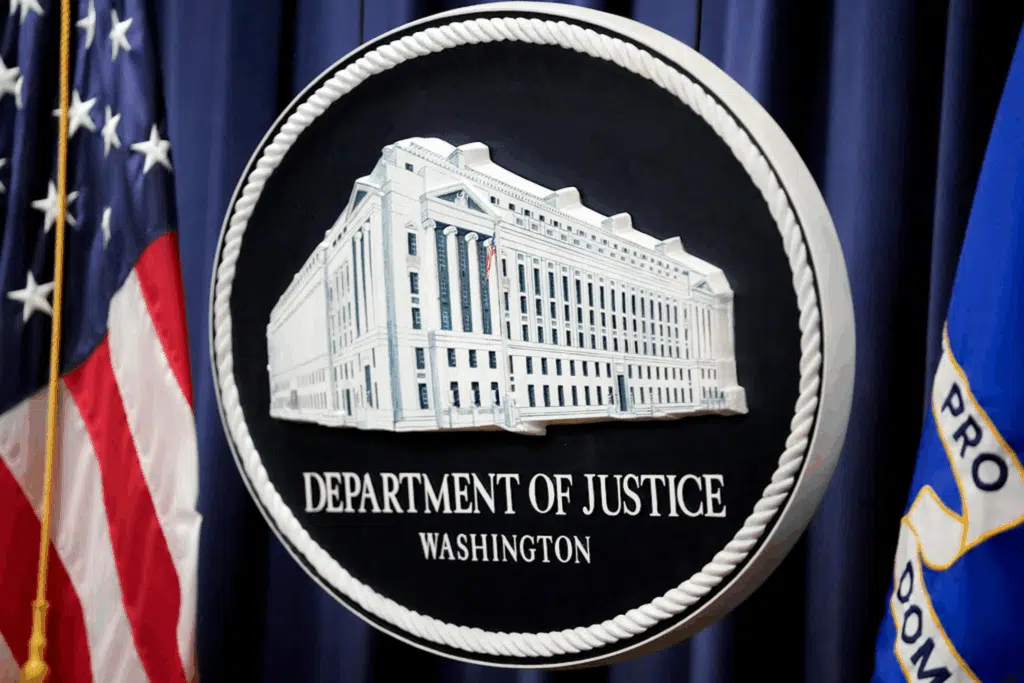
Time for Antitrust Action Against the Climate Cartel
President Biden has blamed high energy prices on Saudi Arabia and greedy American oil and gas companies. But one clique responsible for sharply rising domestic energy costs is not big oil or a foreign potentate. It is a handful of investment managers who manage trillions of dollars of corporate and state pension fund assets. These executives are raising the price Americans pay for gasoline and home heating, while contributing to the unreliability of the electric grid by issuing self-ennobling Environmental, Social and Governance (ESG) directives that force companies to reduce gas exploration and production in the name of climate change.
While human-caused carbon emissions and their impacts warrant serious action, the ESG movement is off-point and self-serving. The ESG movement is a blanket attack on U.S. industries and jobs that produce all hydrocarbons, attempting to de-bank small- and medium-sized American energy producers while seeking replacement fuel from dirtier industries abroad. Within days of being spurned after Biden’s disastrous summit with Prince Mohammed bin Salman, the administration began sending feelers to entice Venezuela to ship oil to the United States in huge, carbon-belching tankers.
None of this makes economic, national security or environmental sense. But restricting the market, and raising the price, of energy produced by the U.S. and other democracies serves to enrich wealthy energy investors, including major donors of the Democratic Party.
The green agenda of this ESG climate cartel is driven by powerful corporate and financial networks like the Glasgow Financial Alliance for Net Zero, which includes networks of institutional investors, big banks, and money managers. One of the money manager networks, Climate Action 100+, has almost $70 trillion of assets under their management. BlackRock, Vanguard, and State Street are the largest shareholders in more than 90% of the S&P 500. They can cast a combined vote share of 25% in S&P director elections. The ability to eject directors gives asset managers the power to force corporations to adopt “net zero” carbon emissions by 2050, whatever the cost to investors, workers, or consumers. Thus, every investor in a fund signed on to Climate Action+ is pushing this agenda whether the fund is labeled that way or not.
This stealth campaign is a major reason that the active oil rig count in the United States is well under what it was in 2018. A survey conducted by the Federal Reserve of Bank of Dallas found that nearly 60% of energy executives cited “investor pressure to maintain capital discipline” as the primary reason that oil companies weren’t drilling more in the face of skyrocketing world energy prices. Nearly 20% were more specific, citing ESG or lack of financing as the reason.
Alaskan oil production is at a 20-year low in part because the six largest U.S. banks refuse to finance additional Arctic drilling. Little wonder the U.S. Energy Information Administration expects U.S. production will still be roughly 1 million barrels a day below the pre-pandemic peak of late 2019.
Over the past five years, global ESG funds underperformed the broader market by more than 250 basis points per year. Energy has become the top driver of inflation and constricts energy employment. While consumers and energy workers lose out, these artificial market restrictions swell the energy profits of the very investors who are so nobly calling for action.
BlackRock’s chairman Larry Fink saw his total compensation rise 21% in 2021 to a total of $36 million. The combination of market restriction and eye-popping windfalls recently led 19 state attorneys general to begin an antitrust investigation of ESG pressure tactics. Florida Gov. Ron DeSantis divested billions of dollars from BlackRock’s management. These state leaders want to know if powerful firms are profiteering from high prices by restricting the availability of a key commodity in their investment portfolio.
For an administration that purports to be a zealous enforcer of antitrust laws, it somehow overlooks the ESG cartel’s energy squeeze as an obvious violation of the Sherman Antitrust Act, which forbids conspiracies for the “restraint of trade or commerce.” The powerful investment firms driving this movement are engaged in a public violation of federal law, which prohibits companies from colluding on group boycotts or conspiring to restrain goods. They also disregard the bedrock principle of antitrust law, the Consumer Welfare Standard.
Sen. John Sherman, brother of the Civil War general and author of the Sherman Antitrust Act, said: “If we will not endure a king as a political power, we should not endure a king over the production, transportation, and sale of any of the necessaries of life.”
For millions of Americans going to work and school every day, for elderly people who struggle to heat their homes in winter, energy is a necessity of life. State attorneys general should continue to press on to do something about King ESG.
This article was originally published by RealClearPolitics and made available via RealClearWire.



